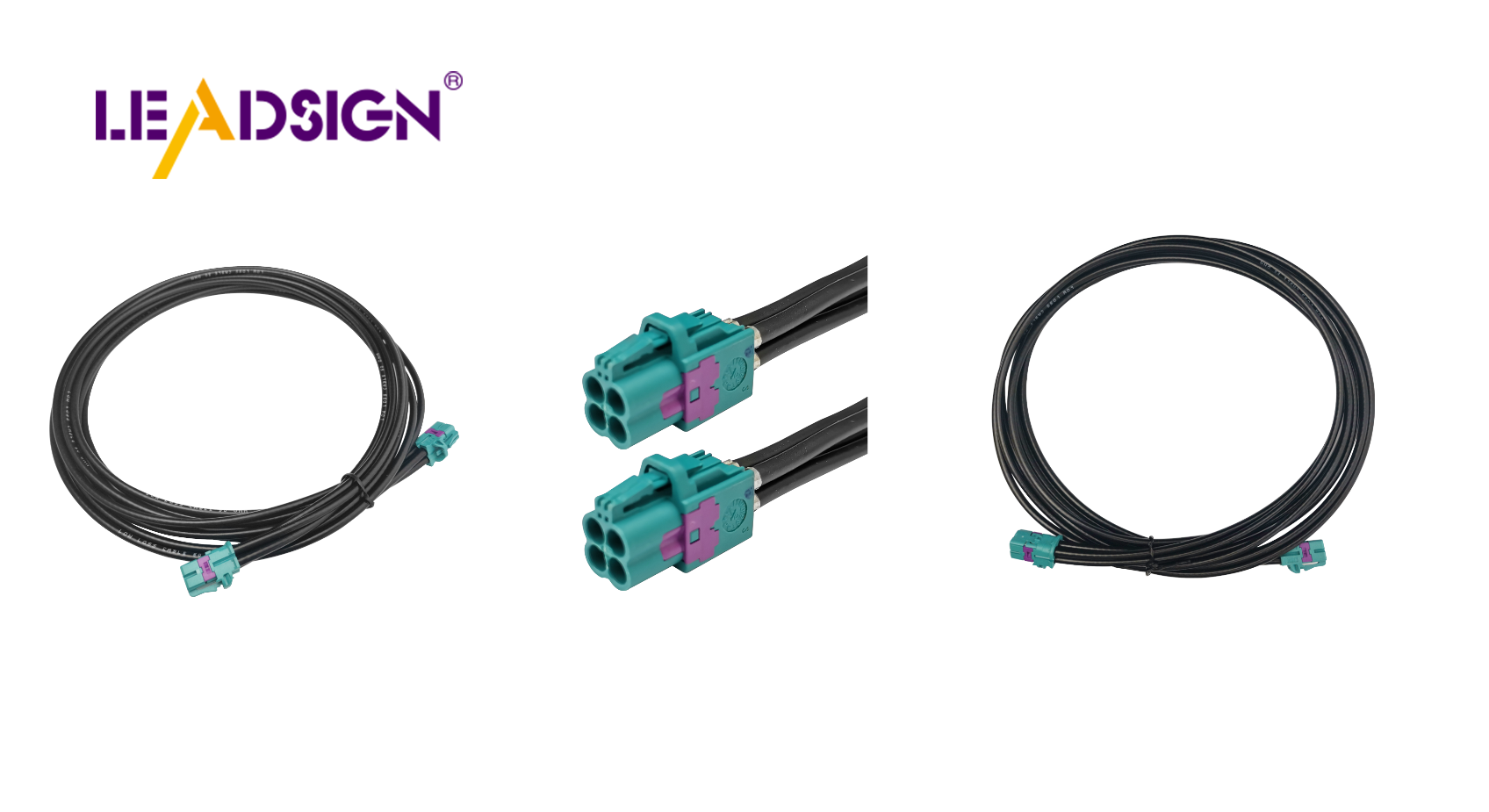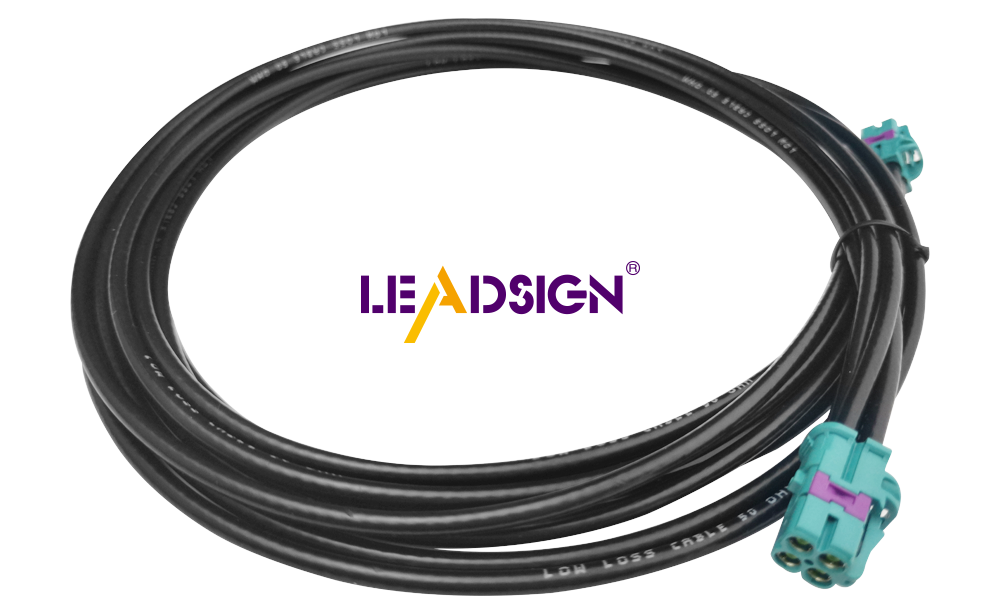Top Tips for Using Automotive Wiring Connector Types

Car wiring connectors, which are one of the many automotive electrical connectors types, are very important for safety and performance. They move power and data between electronic parts in cars, making them essential for modern vehicles. By using good practices, you can make your car's electrical systems last longer. Taking care of these connectors keeps them working well. Regular checks help them stay strong and reliable. A well-kept connector system works better and stops electrical problems from happening.
Understanding Different Connector Types

In cars, knowing about different wiring connectors is important. These connectors help move power and data between car parts. Let's look at some common types and how they are used.
Common Automotive Electrical Connectors Types
Blade Connectors
Blade connectors are very common in cars. They have a flat metal piece that fits into a slot. You use them when you need to disconnect things quickly. Their design keeps them securely connected.
Bullet Connectors
Bullet connectors look like small bullets. They connect well and are easy to use. You find them in tight spaces because they fit well in small areas.
Butt Connectors
Butt connectors join two wires together end-to-end. They are great for fixing wires without replacing all of it. You often use them when repairing or extending wires.
Applications of Each Type
Knowing when to use each connector type helps keep your car's electrical system safe and efficient.
When to Use Blade Connectors
Use blade connectors where you need to disconnect often, like fuse boxes. They allow quick access for maintenance or replacement.
Ideal Scenarios for Bullet Connectors
Bullet connectors work best in cramped spaces, like engine areas or behind dashboards. Their small size makes them easy to use there.
Best Uses for Butt Connectors
Butt connectors are perfect for joining two wires securely during repairs. They let you fix wires without needing lots of rewiring.
By knowing these connector types and their uses, your car's electrical system can stay reliable and efficient. Regular checks and cleaning will make sure they last longer.
Best Ways to Install Connectors
When you work with car connectors, using good methods helps them work well. Doing things right stops problems later and makes your car's system better.
Getting Ready to Install
Before putting in car connectors, get ready first. This step makes sure you have what you need.
Collecting Needed Tools
First, gather all the tools you'll need. Get wire cutters, crimpers, and a multimeter. These tools help with car connectors. Having them makes the job easier and faster.
Stripping Wires Right
Stripping wires correctly is important for strong links. Use a wire cutter to take off the cover without hurting the wire. This helps connectors hold onto the wire tightly.
How to Install Correctly
After getting ready, focus on how to install right. These steps make sure connectors work safely.
Making Sure Connections are Tight
To keep connections tight, put the wire in the connector and use a crimper to squeeze it hard. A tight connection stops wires from coming loose and causing problems. Always check that wires stay in place.
Checking Connections Work Well
After making connections tight, test them to see if they work well. Use a multimeter to see if electricity flows through the connectors right. Good connections keep your car safe and working well.
By using these ways, you can put in car connectors properly. Good prep and installing make your car's system strong. Regular checks help these parts last long.
Taking Care of Connectors
Taking care of car connectors helps them work well and last longer. Follow easy steps to keep them in great shape.
Checking Often
Look at your car connectors often. This helps find small problems before they get big.
Looking for Rust
Rust can make connectors not work well. Check for rust or color changes on metal parts. If you see rust, clean it right away. Use a cleaner safe for plastic to clean pins and stop more rust.
Keeping Connections Tight
Loose connections can cause problems with electricity. Check each connector to make sure it's tight. Tighten any loose ones quickly. A tight connection makes sure power moves well through the connectors, keeping your car's system reliable.
Cleaning and Storing Right
Clean connectors and store them properly to make them last longer. These actions help keep connectors in good shape.
How to Clean Well
Clean your connectors often to get rid of dust and dirt. Use a soft brush or cloth gently. For hard dirt, use a little grease that keeps water out to protect from moisture and dirt.
Storing Safely
Keep your car connectors in a dry, clean place. Stay away from wet or very hot areas as they can harm the connectors. Use labeled boxes to sort different types so you can find them easily later.
By following these tips, you help your car's electrical system work better and last longer. Regular checks, cleaning, and storing safely are important for keeping everything running smoothly.
Common Mistakes to Avoid
Knowing common mistakes with car wiring connectors saves time and stops problems. Avoiding these helps your car's electrical system work better.
Wrong Connector Choice
Picking the right connector is key for safety and function. Watch out for these errors:
Using Wrong Connector Types
Not all connectors are the same. Using the wrong one can cause bad connections. Each type has a job. For example, using a bullet instead of a blade can make it loose. Always use the right connector for the job to fit well.
Ignoring Connector Limits
Connectors have limits on how much power they handle. Ignoring this can cause overheating and failure. Check each connector's details to match your system's needs. This step stops damage and keeps things safe.
Bad Installation Habits
Even with good connectors, installing them wrong causes issues. Avoid these habits:
Skipping Connection Checks
After putting in connectors, you might skip testing them. But testing is important! It checks if electricity flows right through them. Use a multimeter to ensure each connection works well. This simple check avoids future problems.
Not Following Maker Rules
Manufacturers give rules for reasons. Ignoring them leads to bad installs. Over-tightening can break parts, causing bad links. Follow torque rules to avoid this problem. Sticking to guidelines makes connectors last longer and work better.
By knowing these mistakes and avoiding them, you improve your car's electrical safety and performance. Regular checks and following best practices keep connectors in great shape.
Understanding car wiring connectors is important for keeping your car's electrical system working well. By using these tips, you make your car's electronics more reliable and efficient. Regular care, like cleaning, and checking connectors, helps them work better and last longer.
"Taking good care of car connectors is key to making sure they work their best and last a long time."
We invite you to share your thoughts and advice in the comments. Your ideas might help others fix their car electrical systems.
See Also
Understanding HSD Connectors Essential for Automotive Applications
Why FAKRA Connectors Matter in Automotive Systems
Significance of Fakra Connectors in Today's Vehicles

